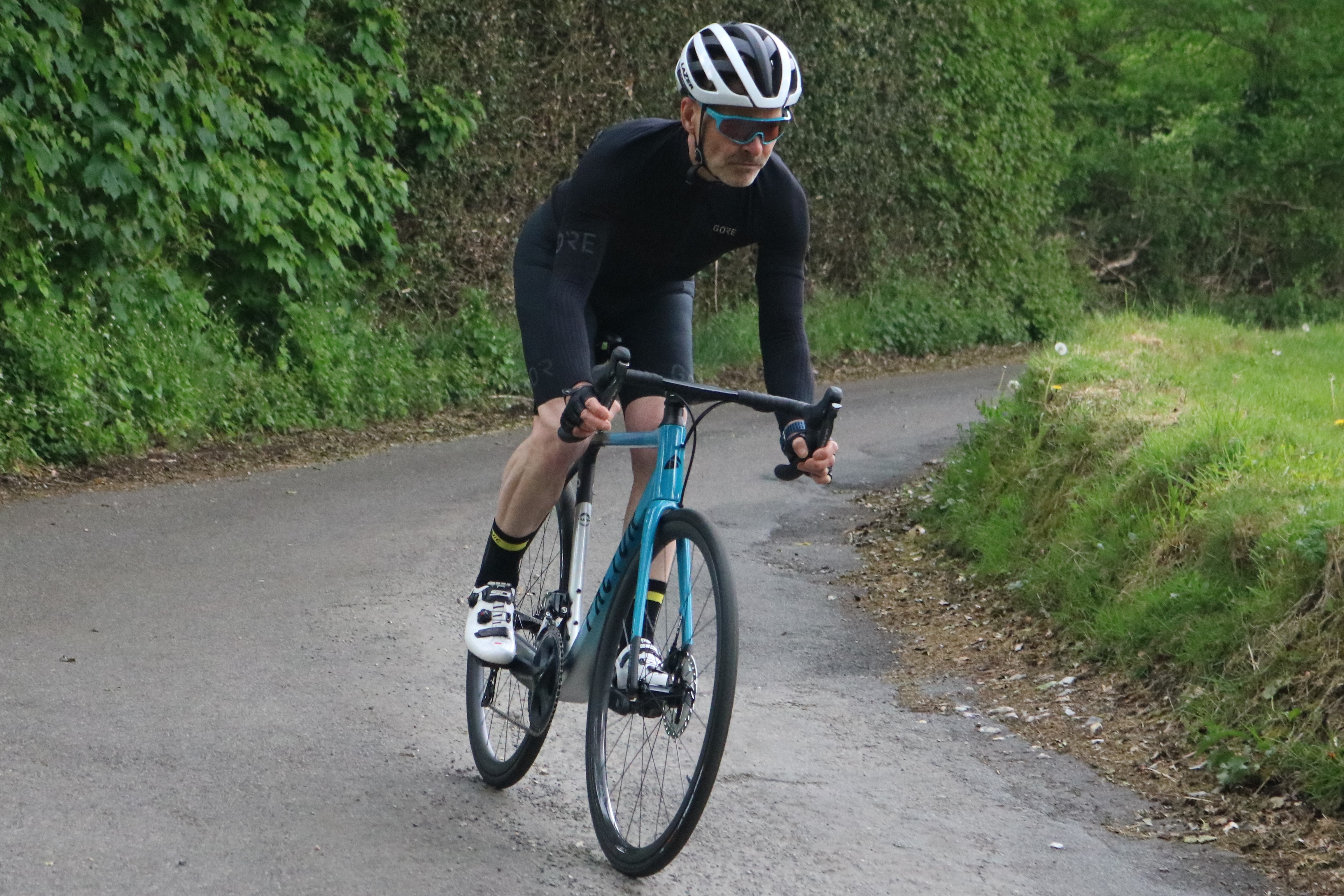Scott Speedster 20 Disc review
Scott’s budget endurance bike is a comfortable ride over choppy surfaces
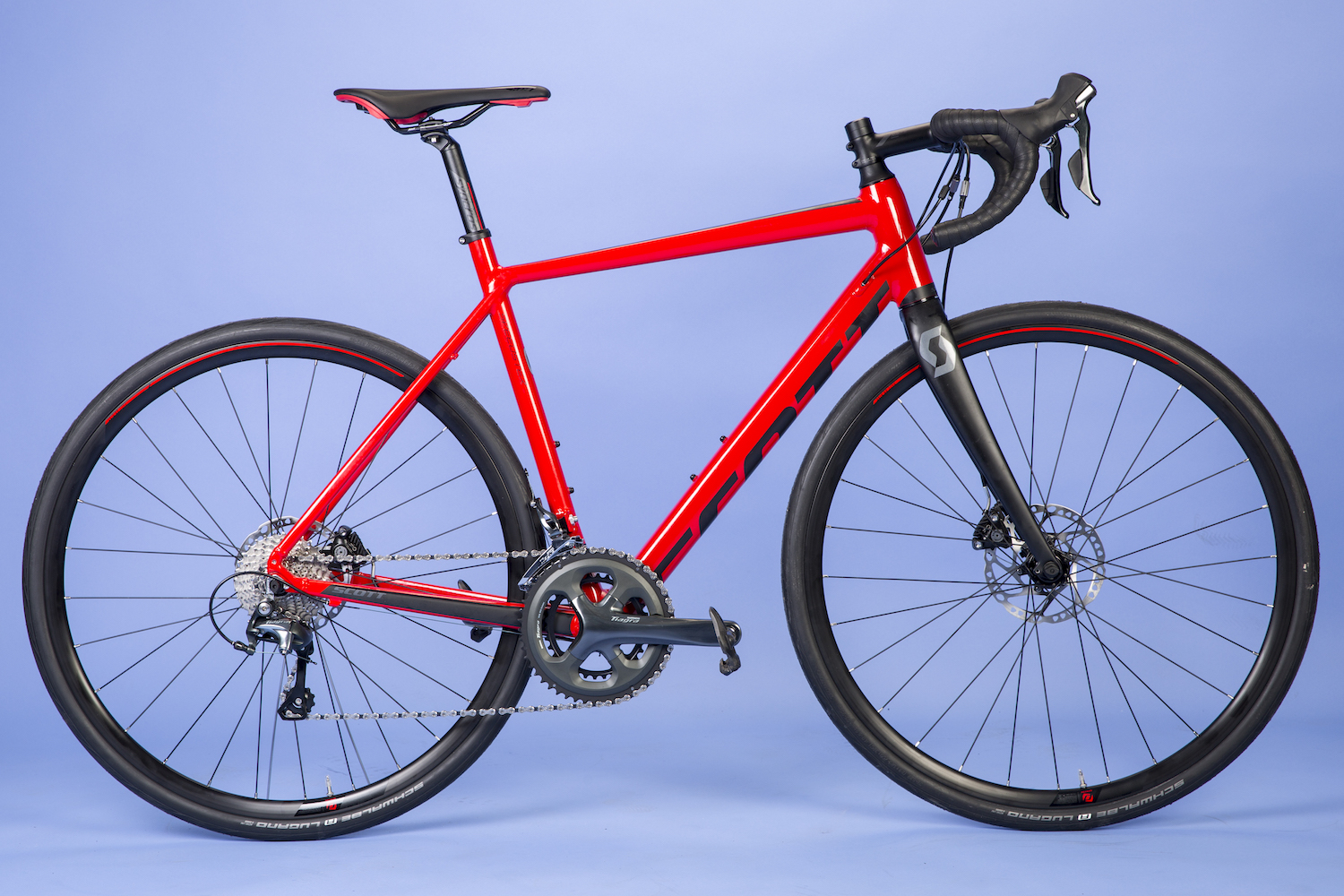
The Scott Speedster 20 disc is a comfortable machine for longer rides on choppy road surfaces, with its 32mm tyres and well padded saddle doing a lot to smooth the way. The mechanical discs provide assured stopping, if less effective than hydraulic calipers. But the 10kg weight is a bit more than many bikes at this price point and leads to slower climbing.
-
+
Comfortable long distance ride on the 32mm tyres
-
+
Wide gear range for confident climbing
-
+
Good endurance position without being too laid back
-
+
Confident stopping from the disc brakes
- +
-
-
Quite heavy
You can trust Cycling Weekly.

Like a kid named Butch, the Scott Speedster has a name that was always going to be difficult to live up to. In truth, it’s not a bike destined to be raced through deserted city streets at night. But as a reasonably priced, comfortable endurance machine, it’s got a lot going for it.
The aluminium Scott Speedster range sits below the carbon Addict in the Swiss brand’s portfolio. The Addict RC is Scott’s lightweight climber’s bike ridden to Vuelta a Espana victory by Simon Yates in 2018.
>>> Buy now: Scott Speedster 20 Disc from Tredz for £999
You can get the Speedster and the women’s equivalent Contessa in either rim or disc-brake format, with prices starting at £550 and rising to £1,400 for the Speedster 10 Disc. The Speedster 20 Disc tested here is the lower-spec disc-brake option and commands a £100 premium over the rim-brake equivalent Speedster 20.
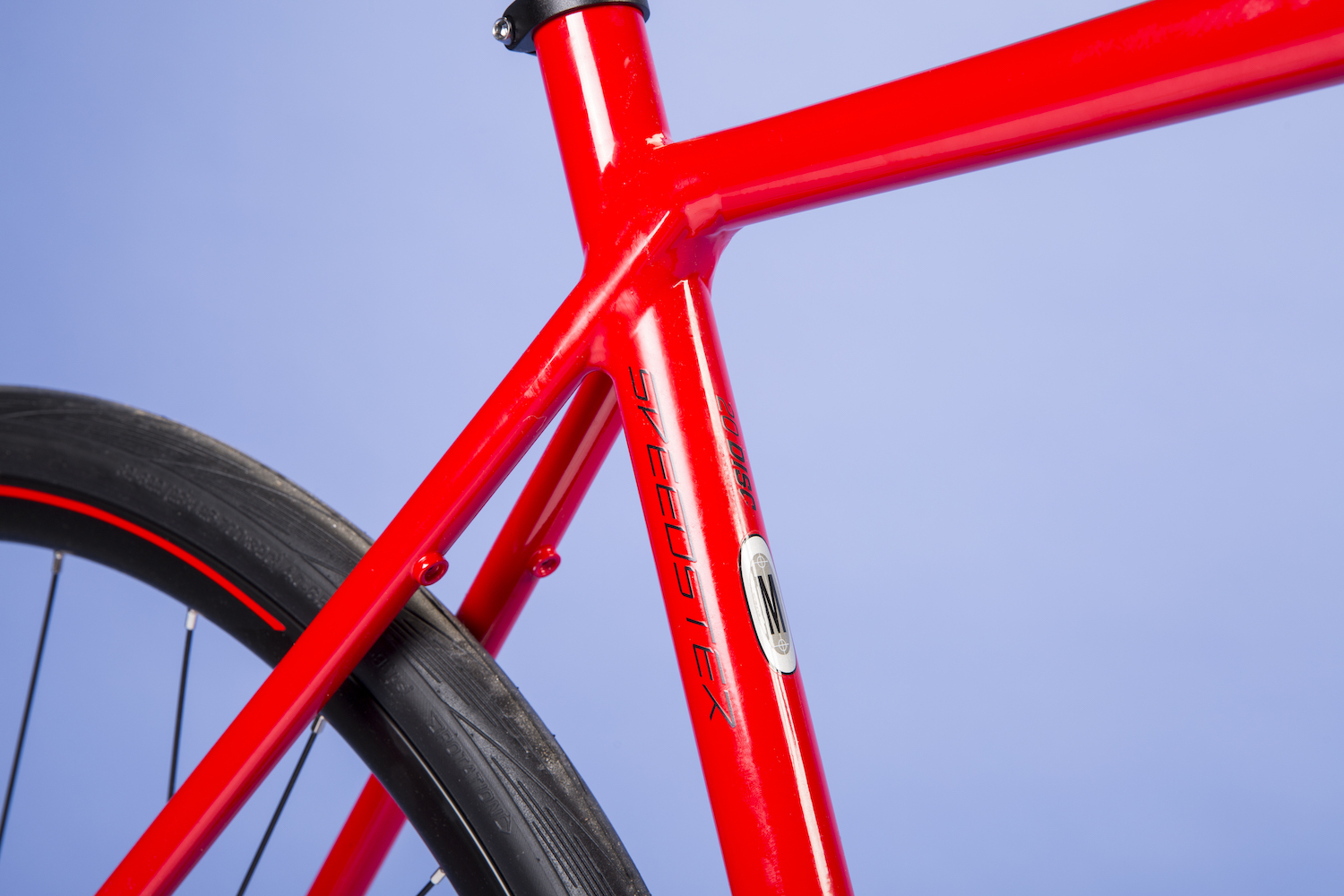
All the Scott Speedster bikes feature an alloy frame, with the higher-specced models, including the two Speedster Disc models, substituting a full carbon fork for the lower-priced models’ alloy number.
The Speedster 20’s frame comes with a chunky down tube and fully internal cable routing. The welds aren’t pretty, with big areas of slightly smoothed welding particularly around the seat tube-top tube-seatstay junction. But the top tube tapers elegantly and slopes from front to rear and you get the option to use the frame’s eyelets to fit mudguards to the rear and to the carbon fork.
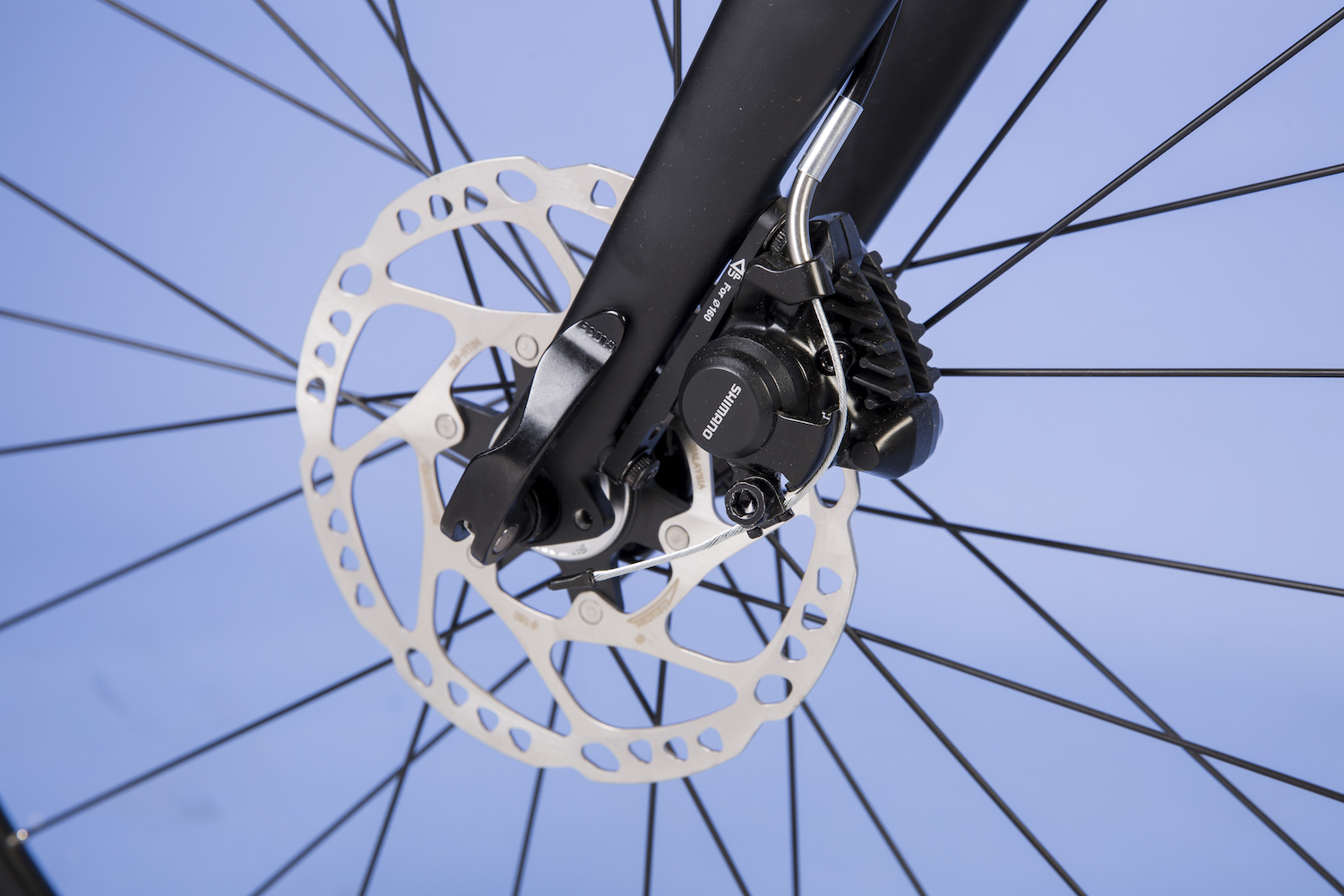
As is the trend, there’s plenty of clearance in the frame and fork: in the non-disc Speedster, Scott fits 28mm tyres, while in the disc-brake bikes Scott makes full use of the space to fit 32mm wide Schwalbe Lugano tyres.
The latest race content, interviews, features, reviews and expert buying guides, direct to your inbox!
Those extra-wide tyres make for a comfortable ride over just about any surface, including the odd patch of bridleway or towpath, and add a large part to the Speedster Discs' endurance credentials. The frame’s geometry isn’t that laid back, with a comparatively short 987mm wheelbase and a 74° seat tube in the size 54 tested and 415mm chainstays.
Scott Speedster 20 Disc spec
The wide tyres run on Scott’s own disc-specific Syncros Race 23 Disc rims, with Formula Team CL Disc hubs laced with plain-gauge black spokes. There are quick-release hubs and dropouts rather than the thru-axles now more usually specced with disc brakes.
That’s coupled to Shimano RS305 cable operated mechanical disc brake calipers with 160mm rotors. Although less polished and with less out-and-out stopping power than a hydraulic set-up, there’s still the all-weather dependability that discs will always provide in greater measure than rim brakes. The calipers are fitted with Shimano’s finned heat sink pads, so there should be no risk of overheating on longer descents.
Shifting is supplied by Shimano Tiagra. Shimano’s 10-speed groupset has benefitted enormously from trickle-down from the brand’s 11-speed options, with hidden cable routing under the bar tape and comfortable levels that, in their non-hydraulic version, are svelte and not at all bulbous. Chainset and mechs look similar to 105 and above too.
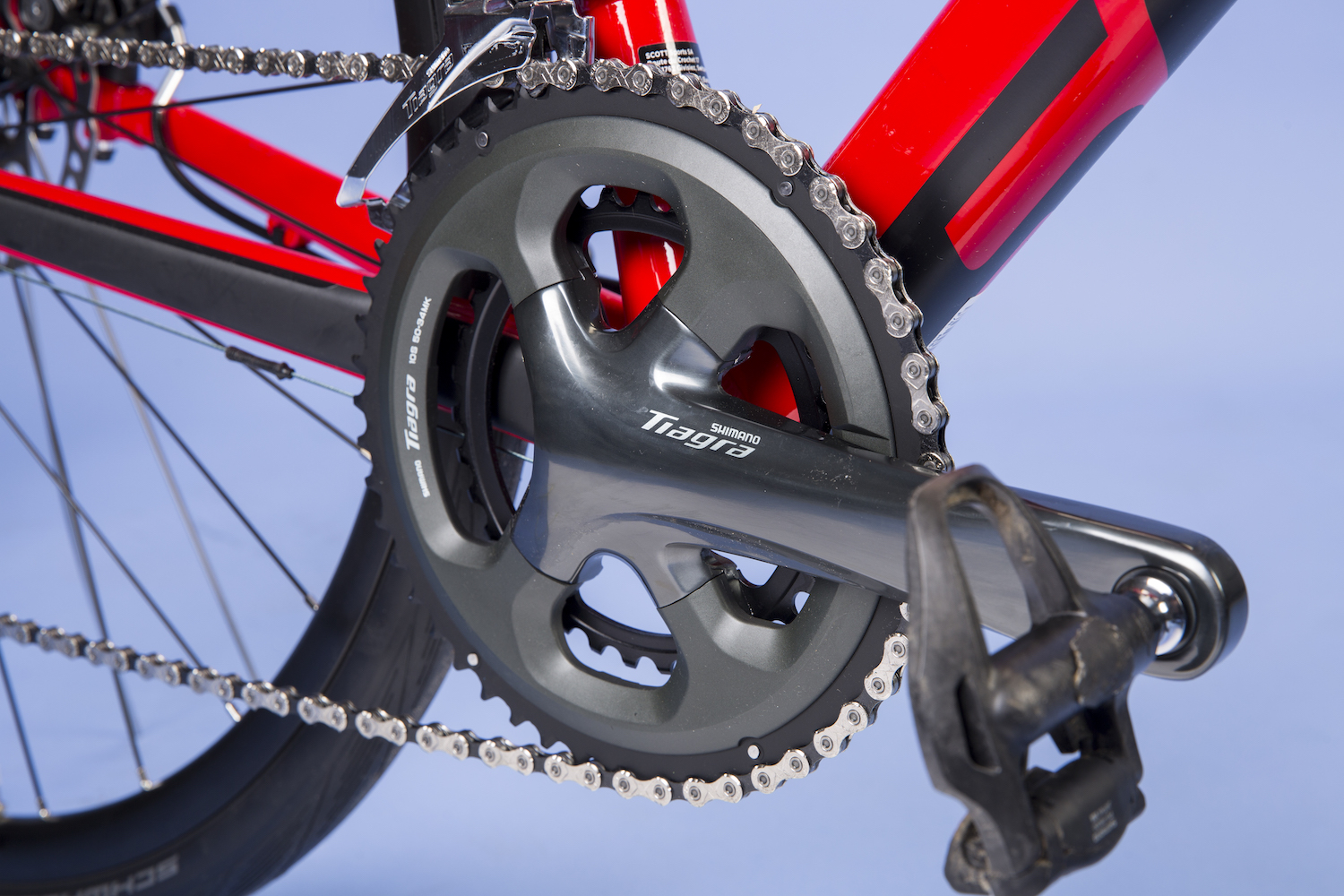
Although you get larger jumps between ratios in the 11-32 cassette than with an 11-speed, you’d otherwise be hard-pressed to notice the difference in shifting performance. Coupled to the 50/34 compact chainset, there’s plenty of range to manage climbing, as well as fast descents on the other side.
As you’d expect on a bike at this price point, the finishing kit – bar, stem and seatpost – are all own-brand alloy. Scott’s Syncros-branded stem is a bit longer than average at 110mm, but that’s compensated for by the bar’s slight backward sweep, which leads to a comfortable hand position when riding on the tops. Scott fits squishy bar tape to help cushion the ride too.
The Syncros FL2.5 saddle fitted is a comfortable perch, particularly well padded under the sitbones and long enough that you can alter your position as you ride.
Riding the Scott Speedster 20 Disc
The Scott Speedster is one of those bikes that just feels really comfortable to take out for a longer explore.
The 32mm tyres smooth out all but the roughest road surfaces, gliding over the usual tar and gravel and odd incipient pothole. Coupled with the comfortably padded saddle, it’s a bike well suited to UK road conditions. It’s good to get the option to fit mudguards too, as the wide tyres would be well suited to riding in wetter conditions over winter.
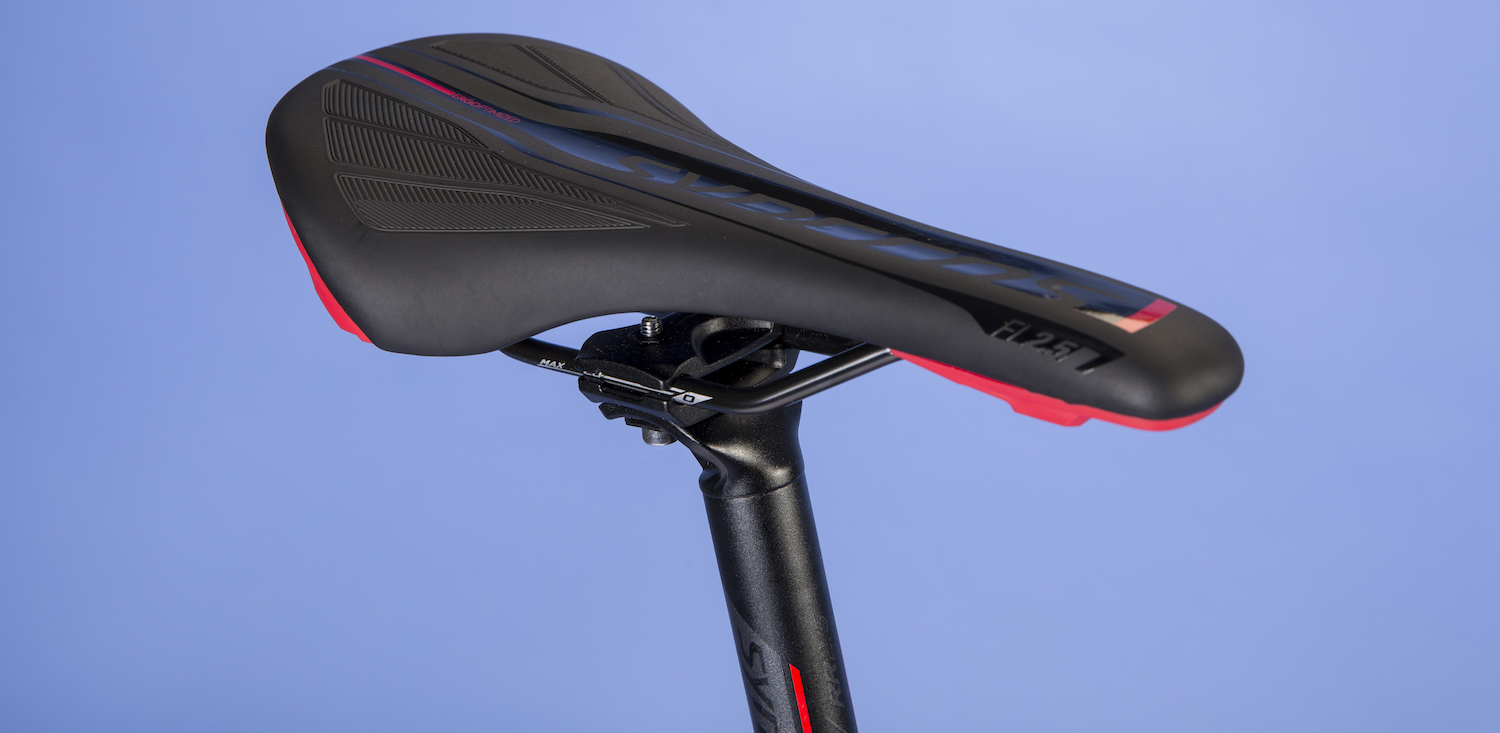
The stable geometry means that there are no handling surprises or jitteriness either. But at 10kg, the Scott Speedster 20 Disc is a bit heavier than many bikes at this price and that’s reflected in its acceleration and climbing – rather belying its name. As with most disc-brake bikes, there’s around a 500g weight penalty over the rim-brake equivalent.
I found that I was making full use of the Speedster’s lower gear range to spin up both steep and longer rises in the Chilterns. But there’s bags of range in the 10-speed Shimano Tiagra groupset to get you up and over the hills you encounter in your ride.
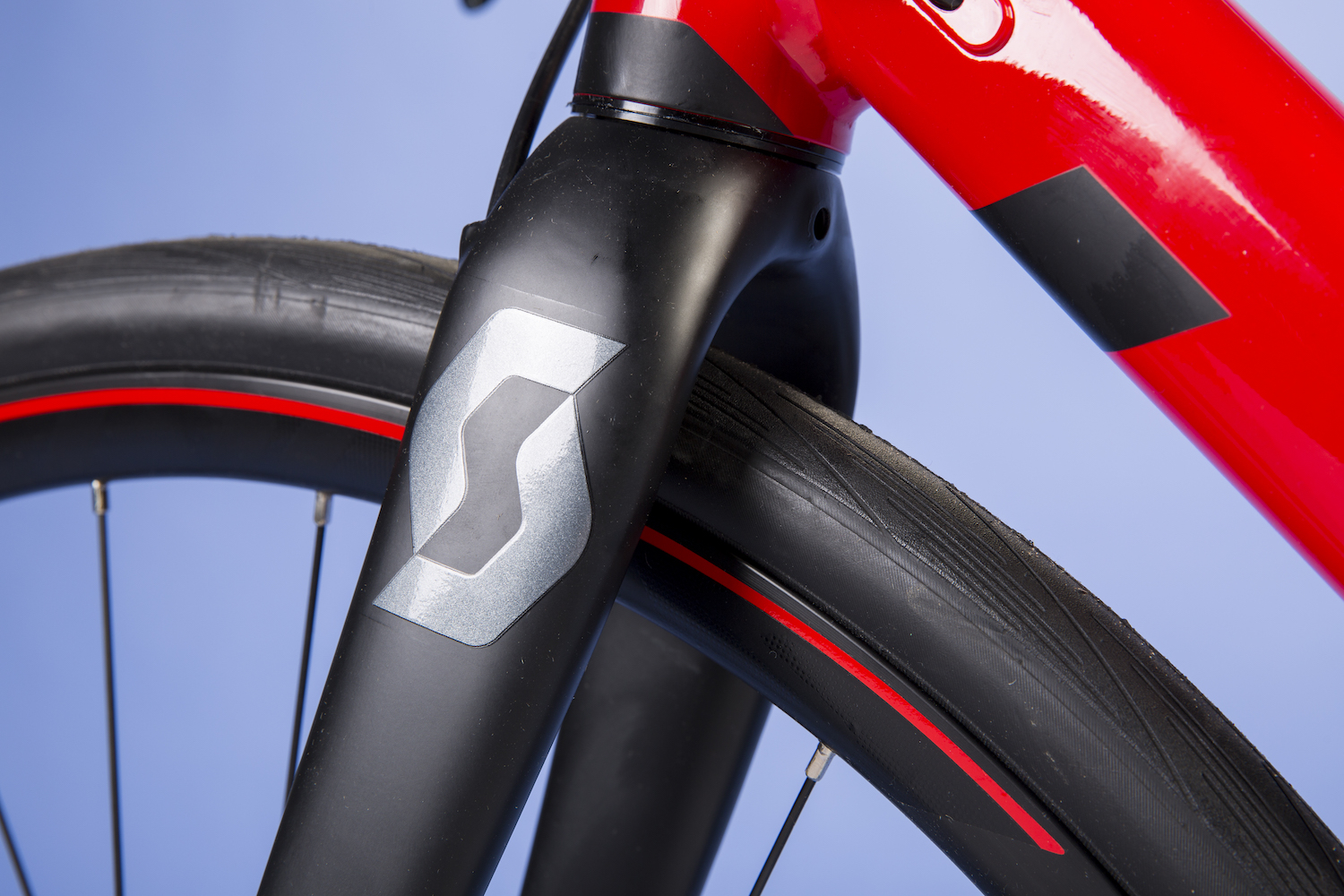
With so much air in the tyres, I was able to dial the pressure down so there was plenty of grip to tackle dry off-road and I took the Scott Speedster over some canal towpaths and bridlepaths, including some steeper uphills. It’s not quite as comfortable or confidence-inspiring as a full-on gravel bike, but there’s the option there to link some non-tarmac sections into your ride. There should be enough clearance for cyclo-cross tyres too, if you want extra grip.
Value
The Scott Speedster Disc provides an attractive package for the long distance cruiser, with a modern spec that makes use of the frame’s wide clearances to fit really wide tyres. It’s a comfortable ride, if a bit heavy, and its well-though- out design should serve well for the budget-sensitive rider.
There’s not much down-speccing of components, with a full Tiagra groupset and quality own brand components. But it would be nice to see hydraulic rather than mechanical disc brakes.
Paul started writing for Cycling Weekly in 2015, covering cycling tech, new bikes and product testing. Since then, he’s reviewed hundreds of bikes and thousands of other pieces of cycling equipment for the magazine and the Cycling Weekly website.
He’s been cycling for a lot longer than that though and his travels by bike have taken him all around Europe and to California. He’s been riding gravel since before gravel bikes existed too, riding a cyclocross bike through the Chilterns and along the South Downs.
